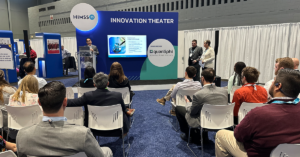According to the Society for Information Management’s 2016 IT Trends Study, 46 percent of IT leaders cited analytics/business intelligence/big data as the number one most difficult technical skills group to find and recruit. In addition, hiring managers cited those same skills as the number two most important capabilities needed by organizations (cited by 47 percent). With a high demand for strong analytics and business intelligence skills across the healthcare industry, how can companies address the skills deficit?
Healthcare analytics company, MedeAnalytics strives to overcome this industry trend with a mixed approach.
In terms of recruitment, a good data engineer/analyst is hard to come by but there are events and specific demographic areas that a hiring manager can attend. Regularly participating in local tech meet-ups is a great way to network and get to know experts in the field. Also, collaboration with local colleges and universities can help fill the new hire funnel and gives your organization the opportunity to influence which technologies students are exposed to during their training.
Training and promoting talent within is also important as data science technology is ever changing and finding someone with complete, up-to-date expertise is difficult. Hiring managers and data teams can address this by offering internal training programs to fill skill gaps in-house.
With this strategy, MedeAnalytics continues to grow its team with top engineers and analysts. Think you have what it takes to join our data team? Check out our current job openings here.
Get our take on industry trends
Best practice tools to build an integrated approach to multimorbidity
The traditional model of treating single diseases no longer works. Data collected from 2016 to 2019 indicated that 32.9% of…
Read on...Will adopting a risk-based approach with augmented analytics support care gap closure?
A common challenge for healthcare systems is how to properly segment its patient populations based on risk profiles and co-morbidities. Doing this well ensures a high quality of care delivery and superior patient outcomes.
Read on...4 questions healthcare executives are asking about augmented analytics
At our annual Impact Summit, I had the privilege to talk about augmented analytics and address questions from healthcare executives—many…
Read on...


